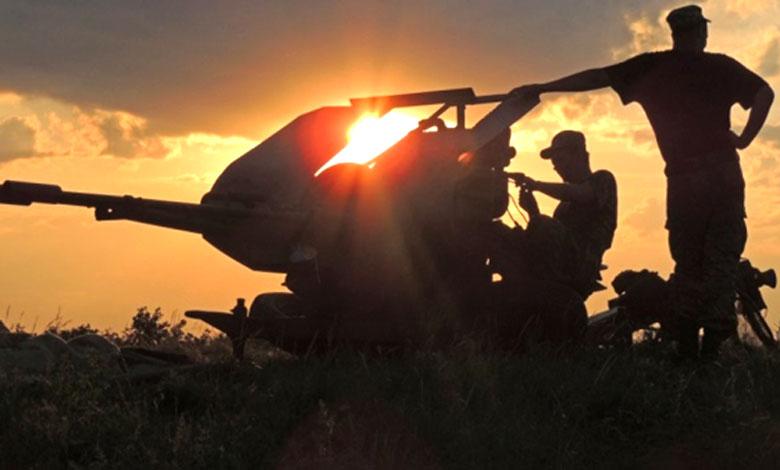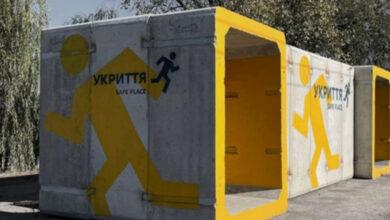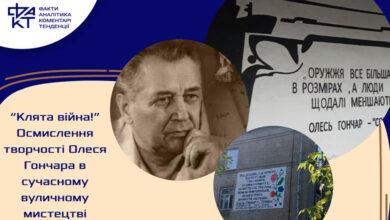The Kremlin’s “yes, but”: why Putin is delaying the ceasefire (foreign press review)

The Kremlin is again trying to buy time, responding to the US initiative for a 30-day ceasefire with a resolute “yes, but…”. Russia agrees to talk about a truce, but puts forward conditions that could block any real progress. Meanwhile, the US is increasing sanctions pressure, forcing Moscow to make a choice: to agree to a pause or to plunge further into the war. Western leaders are disappointed in the diplomatic maneuvers of the Kremlin, and Ukraine is preparing for possible changes on the front. Will diplomacy be able to stop the war, or is it another illusion of peace? About this – in our review of foreign media.
Sanctions without fanfare: how Trump squeezes Russia in a diplomatic vise
Agency Bloomberg believes that the US is quietly increasing sanctions pressure on Russia in order to get the Kremlin to agree to a 30-day ceasefire. Bloomberg believes that the Trump Administration deliberately did not focus on the expiration of the license that allowed certain Russian banks to receive payments in dollars (the so-called General License 8). We remind you that this license was valid from February 2022. The decision to terminate the license was laid by the Biden administration, which shortened the validity period to March 12, which will make it difficult for Russian financial institutions, including Sberbank, VTB, Alfa Bank and others, to access payments in dollars.
According to experts, such a step will significantly complicate the receipt of income from Russian oil and gas exports. US Treasury Secretary Scott Bessent said Washington is ready for further sanctions to put pressure on Russia. At the same time, the impact of the new restriction is still unclear, as buyers of Russian energy could prepare for it in advance or find alternative payment methods.
“War criminal Putin cannot play the victim” – writes the publication Political. And adds: “Republican Party hawks press Putin for ceasefire”.
Politico’s op-ed points out that hardline Republicans have criticized Putin for obstructing peace talks. Although the Russian leader did not reject the proposed ceasefire, he put forward a number of conditions that make it difficult to reach an agreement.
Senator John Cornyn wrote on the X Network: “Putin does not want peace, he wants conquestsCongressman Joe Wilson added: “President Trump graciously offered Putin a way out of this madness. The problem is that Putin does not want peace, he wants Ukraine“.
President Trump noted that the Russian leader made a “promising” statement, but it was not enough to end the war, and hinted at the possibility of a meeting with Putin.
Republicans who support Ukraine, including Don Bacon, criticized the Kremlin for stalling the talks and called for tougher sanctions against Moscow. At the same time, Trump is vacillating between supporting Kyiv and seeking a compromise with Putin, which is creating tension among his fellow party members.
Politico makes quite correct emphasis in interpreting the causes of the Russian-Ukrainian war. The publication notes: The Kremlin justifies its invasion of Ukraine by allegedly wanting to “liberate” the country from the “Nazis” — an accusation that has no basis. In reality, Russia’s goal is to destroy the Ukrainian government and seize significant territories. Ukraine and its allies understand this and continue to support its defense.
Putin balances between “yes” and “no”
An authoritative British publication The Guardian writes about the reactions of key actors to Putin’s statements about the truce. In particular, the publication notes that the Russian president is trying to avoid a direct rejection of Trump’s proposal and maintain a balance between not ignoring Trump’s call for peace and imposing his tough demands for continuing negotiations. The Guardian notes that Putin has expressed doubts about the US-proposed ceasefire plan in Ukraine, saying that he supports the idea but imposes conditions, such as ending mobilization and halting the supply of Western weapons to Kyiv. He notes that Ukraine seeks a truce due to difficulties on the battlefield, and that this issue needs to be discussed with the US, in particular with Trump. In turn, Zelensky rejects Putin’s position as manipulation and accuses him of intending to continue the war.
Trump, in turn, declares that he is ready for negotiations with Putin and reminds of possible financial sanctions for Russia in case of refusal of the truce. Great Britain, in turn, emphasizes that it is impossible to set conditions for a cease-fire, and the support of Ukraine from its partners is unwavering.
Kellogg is “the wrong caliber” for Moscow
German edition The world writes that Russia has informed the US of its reluctance for the US Special Representative for Ukraine and Russia, Keith Kellogg, to continue participating in negotiations to end the war in Ukraine. The Russian representative noted that Kellogg, a former American general, is too close to Ukraine and does not meet Russia’s requirements for negotiations, characterizing him as “the wrong type” and “the wrong caliber.” The publication also reports that the Crown Prince of Saudi Arabia, Mohammed bin Salman, in a telephone conversation with the President of Russia, Vladimir Putin, again offered his country’s help in promoting dialogue and supporting a political solution to the war in Ukraine.
In his column “He doesn’t want peace yet” for “The time” Michael Tuman points out that Russia has always declared its willingness to negotiate, but after the corresponding steps of the US, it became clear that Putin actually wants to continue the war in order to seize more territories. The mirror comes out with the article “A decisive “yes, but” from Moscow“, where he notes that US special representative Steve Witkoff has arrived in Moscow. However, just a few hours before the meeting with Witkoff, Putin made it clear that he had no intention of rushing to conclude a ceasefire in Ukraine.
After Putin’s “yes, but” regarding a possible ceasefire in Ukraine, Trump shows signs of impatience – continues the topic of negotiations French quality publication The World.
Putin meets with Lukashenka, Trump – with Rutte
The publication writes about two important events of yesterday. The Russian president, meeting with his Belarusian counterpart Lukashenka in Moscow, tentatively agreed to a proposal for a thirty-day ceasefire put forward by the White House and confirmed by Kyiv. However, Putin is in no hurry to make specific commitments.
At the same time, Donald Trump received NATO Secretary General Mark Rutte in Washington. The rapprochement between the US and Russia, as well as the conditional acceptance of solidarity between the allies, which Trump supports, is causing concern among European NATO members. These events do not provide clear clarity either about peace in Ukraine or about the future of the Alliance, – he writes The World. According to Bloomberg’s latest reports, it became known that Ukraine has been denied NATO membership. Rutte himself announced this in an interview with the agency.
The Armed Forces leave Kurshchyna
Polish edition “Republic”, referring to the words of an interlocutor from the Armed Forces, who wished to remain unnamed, reports that the Russians are pushing Ukrainians out of the Kursk region, and Kyiv is losing an important advantage. There are many signs that Ukraine’s operation in the Kursk region may end before the ceasefire and the start of peace talks.
“Our forces are leaving the Kursk region“, said an interlocutor from the Ukrainian army in an interview for “Rzeczpospolita”. Russian troops are already in control of Suja, but they have not managed to surround Ukrainian units. Putin never goes to war zones, but he came here because our operation is coming to an end.”
“Trump’s man was negotiating in Moscow while oil prices were eroding Russia’s defense capabilities”, – writes the Czech publication Diary of N. It draws attention to one important detail. US negotiator Steve Witkoff arrived in Moscow at 12:30 p.m. local time, but President Putin first met with Belarusian leader Alexander Lukashenko. Witkoff had to wait until late in the evening.
Green camouflage does not signal peace
Agency Al Jazeera draws attention to Putin’s clothes, believing that the green camouflage is a dot in the history humiliating for Russia with the occupation of the Kursk region by the Armed Forces of Ukraine. Putin almost never appears in public in military uniform, despite his status as commander-in-chief. However, on Wednesday he was spotted in green camouflage at the command post in Kursk next to General Gerasimov. It was his first visit to the region after Ukrainian forces controlled part of the Kursk region, including the city of Suja, for more than 200 days.
Observers believe that Putin’s military clothing had a symbolic meaning: it could have been a response to the cease-fire agreement between the United States and Ukraine or a demonstration of determination to continue hostilities. Pro-Kremlin media interpreted this as a signal of an ultimatum.
A similar incident occurred in 2022, when Putin appeared in a dark blue jacket during the exercise. The Kremlin then explained its current choice of camouflage exclusively due to weather conditions.
The Kremlin’s additional demands make a ceasefire impossible
American edition NBC News, referring to the edition Atlantic Council, writes that Putin has evasively responded to Trump’s cease-fire proposal, supporting it in general terms but putting forward additional demands that make real progress impossible. Ukraine hopes that this will convince the US of the Kremlin’s unwillingness to end the war.
Ukrainians are skeptical of assumptions about Russia’s readiness for peace, since Putin does not just seek territorial gains – he wants to meta-destroy Ukraine’s independence. This makes any compromises meaningless.
Western leaders often evaluate the invasion through the prism of rational losses, but for Putin the most important thing is a place in history. He sees an independent Ukraine as a threat to the restoration of the empire and has repeatedly tried to undermine its statehood: from interference in elections to full-scale war. During the three years of the war, the Kremlin openly declares the liquidation of Ukraine, carries out repression in the occupied territories and uses rhetoric that could be defined as incitement to genocide.





